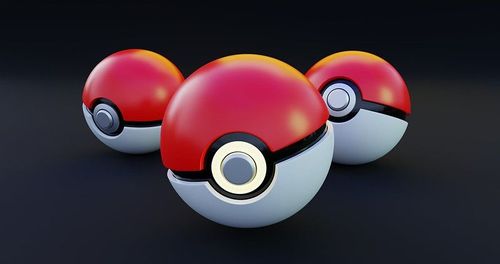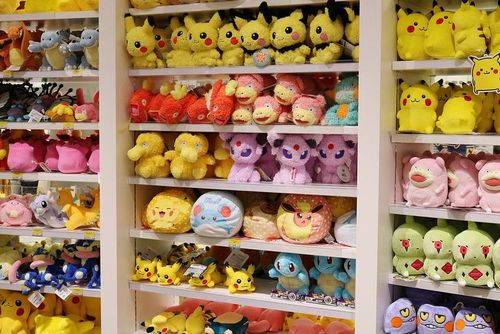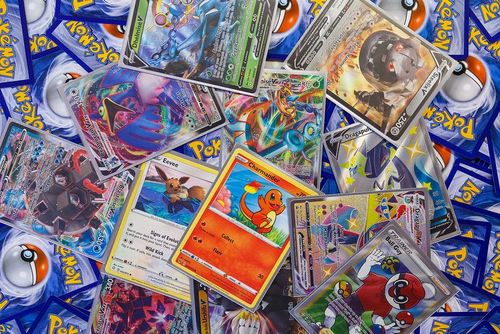FOR ALL AGES
Often more exciting, and more inspirational than the Olympics, the Paralympic Games are a showcase of athleticism and triumph over adversity.
The Games hold an appealing message to families and children. No matter who you are, with practice and dedication you can accomplish anything.
The 16th Paralympic Games take place in Tokyo over August and September 2021. Here, we present a parents’ guide to watching this unique showcase of sport.
The Paralympic Games take place every four years, shortly after the conclusion of the Olympics. These games are for competitors with some form of disability. Besides sporting competitions, the Paralympics features a torch relay and an opening and closing ceremony. Since 1988, the Paralympics have taken place in the same city or region (and same year) as the Olympics.
The paralympics don’t stretch quite so far back as the modern Olympics, which were first held in 1896. However, they still have a rich history.
The first large, organised competition for disabled athletes was held in 1948, to coincide with the London Olympics. The so-called International Wheelchair Games were set up by Dr Lutwig Guttmann and ran in the grounds of Stoke Mandeville Hospital, Buckinghamshire - a hospital well known for its spinal injury centre. The games returned to the venue in 1952 coinciding with the Helsinki Olympics.
The first true Paralympics (though it wasn’t called this at the time) were held alongside the 1960 Olympics in Rome. They’ve since been held every four years. The first Winter Paralympics took place in Örnsköldsvik, Sweden in 1976.
Tokyo is the first city to host the Summer Paralympics twice: first in 1964, then again in 2021.
It doesn’t happen often, but both before and after formation of the modern Paralympics, a handful of disabled athletes have competed in the Olympic Games. The most notable was surely the German-American gymnast George Eyser. Despite competing with a wooden left leg, Eyser won six medals at the 1904 Games, including three golds. Several athletes have competed in both the Olympics and Paralympics, including Pál Szekeres, who won medals at both. Szekeres gained a bronze in fencing at the 1988 Olympics. He was subsequently injured in a road accident, but went on to win three golds and several bronze medals in wheelchair fencing at later Paralympics.
The 2020 Paralympics will forever carry a footnote. As we all know those games were delayed a whole year thanks to the pandemic. The rescheduled opening ceremony is on 24 August 2021 at 8pm local time (midday in the UK, early morning in the US). The Games will end on 5 September 2021.
As with the rescheduled 2020 Olympics, the Paralympic Games will be held in Tokyo.
The Paralympic Games feature an incredible 540 events in 22 separate sports. The biggest discipline is athletics, with 168 events, followed by swimming, which has 146 events. Some 4,400 competitors are expected to participate, representing 135 nations. Bhutan and Guyana will make their debut appearances… so cheer them on!
Many Paralympic sports mirror Olympic counterparts, though often with additional rules, classes or equipment to accommodate competitors of different physical abilities. Look out, though, for several events that do not feature in the Olympics. These include:
Boccia: A sport enjoyed by competitors with cerebral palsy, and played in wheelchairs. It has many similarities to boules, with competitors attempting to throw or roll balls to land as close to a jack as possible.
Club throw: An athletics field event that is the Paralympic equivalent of the hammer throw. Wooden clubs are thrown from a seated position. Competitors of different abilities compete together, with score adjustments.
Goalball: This is a team sport played by athletes with severely imparied vision. Teams of three attempt to roll a ball into their opponent’s goal at the opposite end of the court. The ball contains a pair of bells to help competitors keep track of its position.
Powerlifting: A variant of weightlifting, powerlifting is a test of upper body strength. Competitors lay down and must lift a heavy weight from their chest until their arms are straight vertical (a bench press). Powerlifting has never been part of the Olympics, but has featured in the Paralympics since 1984.
Wheelchair rugby: Although it may sound like a straight analogue of the more familiar Olympic sport, wheelchair rugby runs to very different rules. It shares as many similarities with basketball and ice hockey as it does to rugby. The competition takes place in an indoor, wooden-floored court. Mixed-gender teams of four attempt to carry the (spherical) ball over their opponent’s goal line. Like rugby, physical contact is part of the game, and you’re sure to see plenty of collisions and tumbles.
Most nations will carry significant coverage of the Paralympics. In the UK, Channel 4 and More 4 will show live coverage, with 24 hour action available online. In the USA, NBCUniversal has signed up to broadcast 1,200 hours of programming via NBC, NBCSN and Olympic Channel: Home of Team USA.
The Paralympic Games are planned out more than a decade in the future. And the good news is, because the 2020 Summer Games were delayed a year, it’s only three more years before they roll around again. Along with the Olympics, the 2024 Games will take place in Paris, the 2028 Games in Los Angeles, and the 2032 Games in Brisbane. As for the Winter Paralympics, the 2022 Games will be contested in Beijing, the 2026 Games in Milan and Cortina d'Ampezzo, while the 2030 Games have yet to be announced.
40 Olympic trivia questions (and answers)
Read The Disclaimer
At Kidadl we pride ourselves on offering families original ideas to make the most of time spent together at home or out and about, wherever you are in the world. We strive to recommend the very best things that are suggested by our community and are things we would do ourselves - our aim is to be the trusted friend to parents.
We try our very best, but cannot guarantee perfection. We will always aim to give you accurate information at the date of publication - however, information does change, so it’s important you do your own research, double-check and make the decision that is right for your family.
Kidadl provides inspiration to entertain and educate your children. We recognise that not all activities and ideas are appropriate and suitable for all children and families or in all circumstances. Our recommended activities are based on age but these are a guide. We recommend that these ideas are used as inspiration, that ideas are undertaken with appropriate adult supervision, and that each adult uses their own discretion and knowledge of their children to consider the safety and suitability.
Kidadl cannot accept liability for the execution of these ideas, and parental supervision is advised at all times, as safety is paramount. Anyone using the information provided by Kidadl does so at their own risk and we can not accept liability if things go wrong.
Kidadl is independent and to make our service free to you the reader we are supported by advertising.
We hope you love our recommendations for products and services! What we suggest is selected independently by the Kidadl team. If you purchase using the buy now button we may earn a small commission. This does not influence our choices. Please note: prices are correct and items are available at the time the article was published.
Kidadl has a number of affiliate partners that we work with including Amazon. Please note that Kidadl is a participant in the Amazon Services LLC Associates Program, an affiliate advertising program designed to provide a means for sites to earn advertising fees by advertising and linking to amazon.
We also link to other websites, but are not responsible for their content.
Was this article helpful?



Browse Category

We’ll send you tons of inspiration to help you find a hidden gem in your local area or plan a big day out.



Check your inbox for your latest news from us. You have subscribed to:
Remember that you can always manage your preferences or unsubscribe through the link at the foot of each newsletter.